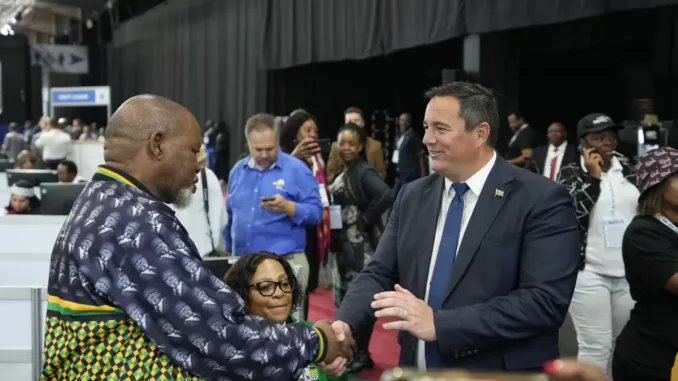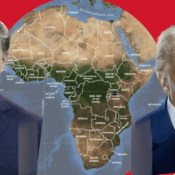
South Africa’s coalition government experiences its initial significant disagreement regarding the education measure
South African President Cyril Ramaphosa’s office announced that he would sign a disputed education measure into law. This led to the first indication of genuine friction in his unity government, as the second-largest party claimed that the action would jeopardize the coalition agreement.
In response to the Democratic Alliance’s statement on Wednesday, Ramaphosa’s spokesperson urged for restraint, asserting that there was no necessity to jeopardize the stability of the government over a measure.
After the ANC lost its parliamentary majority in a May election, the DA formed a coalition with Ramaphosa’s African National Congress and other minor parties, despite their significant ideological differences.
In a statement, DA leader John Steenhuisen stated that the legislation’s passage would contravene the agreements and understandings that served as the foundation of the government of national unity.
“The DA regards this issue in the most serious light, and I will convey to the President the destructive implications it holds for the future of the GNU,” according to him.
Steenhuisen did not specify the potential consequences. On Thursday, he is scheduled to provide an overview of the DA’s involvement in the unity government to journalists in Cape Town.
Vincent Magwenya, the presidential spokesperson, indicated that the parties in government would convene on Wednesday evening to deliberate on a dispute resolution mechanism, and that disagreements regarding legislation were to be anticipated.
Magwenya informed reporters in Cape Town that there is no reason to be concerned that the governance framework of the country will be jeopardized with each dispute.
“The president is not concerned about the GNU (government of national unity) collapsing,” he indicated.
The fundamental education laws of South Africa are subject to numerous modifications in the disputed bill. The clause that has generated the most controversy would enhance government oversight of schools’ language and admission policies, which pertains to a delicate discussion regarding racial integration.
According to the ANC, certain children are still being denied access to schools due to language, which has been used as a proxy for ethnicity. The organization hopes that the legislation will prevent this from happening.
The DA has emphasized the significance of mother-tongue education in its defense of the right of school governing bodies to establish their language policies.
Despite the fact that the measure does not specify any particular language or group, the white Afrikaans-speaking community of South Africa has expressed some of its strongest opposition. The interest group AfriForum has stated that it poses a threat to the survival of Afrikaans schools.
The DA’s statement was issued in response to a presidency statement that stated Ramaphosa would sign the Basic Education Laws Amendment (BELA) measure into law on Friday during a ceremony at the Union Buildings, the seat of government in the capital city of Pretoria.
All Categories
Recent Posts
Tags
+13162306000
zoneyetu@yahoo.com



